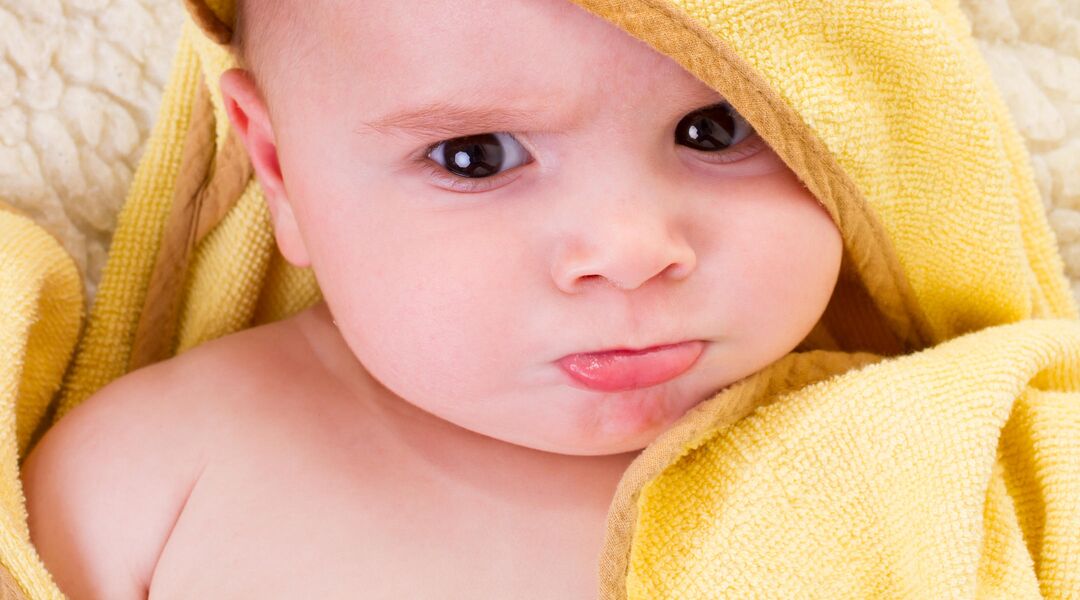In the first few days after birth it is very common for a baby to be frequently breastfeeding, probably around 12 or more times per 24 hours! Yes you heard that right! Your baby is not feeding ferociously often because there is not enough milk, your baby is doing this because this is what nature intends for all human babies to do!
Babies are designed to drink very small amounts very frequently in the first 1-2 days. Most babies only drink about a teaspoon (5-7ml) of colostrum at each feed:
Day one; which is just perfect as their tummy is about the size of a cherry and holds about 7mls at each feed on day one! Perfectly designed!
Day two; you start to make a little bit more colostrum at each feed and this gradual increase in milk each day stretches bub’s tummy allowing them to drink more. Colostrum is a sugary delicious drink but it is not jam packed with fat at this stage, which means baby needs to keep feeding very often to stay full up.
Day 3 on-wards as your milk increases in volume, you will notice your baby starts to have longer sleep periods of around 1.5-3 hours mostly.
The other important reason why babies feed so frequently is for your breasts. The breasts need to have frequent and regular stimulation where the baby removes milk from the breast.
Each time baby feeds it sends signals for the breast to make more milk for the next feed. The milk making cells increase how much milk they can make over the first 2-4 weeks. In that first month your breasts will make a total 24 hour volume of milk which your baby will drink each day for the next 6 months. That’s right, from month 1 to month 6 of age a baby drinks about the same volume every day, yet still gains weight. Babies actually double their weight in the first 6 months all while drinking about 800ml of breast milk every day!
1st Month
During the first month babies need to breastfeed on average 8-12 times every 24 hours to ensure they are getting enough milk and that you stimulate the breast enough to keep building your milk supply.
This is why it is important that if a baby is not yet able to breastfeed well in the first few weeks that a mum expresses her milk as well to keep the signals going to her breasts to increase the milk volume. For example, if her baby is only able to have 3 breastfeeds per day she would express about 5-6 times to keep her milk supply increasing. Once baby is breastfeeding fully, she no longer needs to keep expressing.
Please Note: It is always important to discuss this with your midwife, maternal child health nurse or lactation consultant if your baby is not able to breastfeed well. Also if you find that your milk supply is not increasing by day 3-4 after birth then you may be advised to express on top of doing breastfeeds, but again this will be a plan discussed with you and your breastfeeding support person.
Once you have established a good milk supply, in the first month you may find that your baby changes their feeding pattern again. Many mums report this happens around 6-8 weeks after birth.
After the first month, research has shown us that babies will breastfeed anywhere from 4-13 times every 24 hours.
Each mum and baby’s breastfeeding pattern is different and this is perfectly normal. It is just down to the levels of fat in your milk (fat levels change throughout the day) and the amount of milk your breast can hold at each feed. So do not compare yourself with another mum and baby’s feeding pattern, as it will most likely be completely different from yours.
Trying to force your baby into a strict routines often brings with it tears and stress for both mum and bub!
There are of course some mums and bubs who thrive on strict routines, but these are probably the babies who would’ve gotten themselves into a 4 hourly feeding pattern anyway.
Many mums say the first 6-8 weeks really are the hardest and that it all feels much easier after this point.
In the first few weeks not only is your baby learning how to feed and settle in this new outside world, your breasts are learning how to feed, make milk and send the right signals, and you are learning how to settle into your new role as a mum. All of this takes time. Do not try to do everything at once.
Just focus on what you can do right now:
- feed baby
- establish milk supply
- cuddle and fall more in love with baby
- rest.
Forget about what you can’t do right now. In a few months you will be able to do it all, but this new phase is a big learning curve for most of us. Give yourself a break and remember that feeding a baby for 40-60mins every 1-3 hours is more than a full time job…and that’s just the feeding. This will get easier in time, go with the flow and trust your instincts.
Source: newbornbaby.com.au


